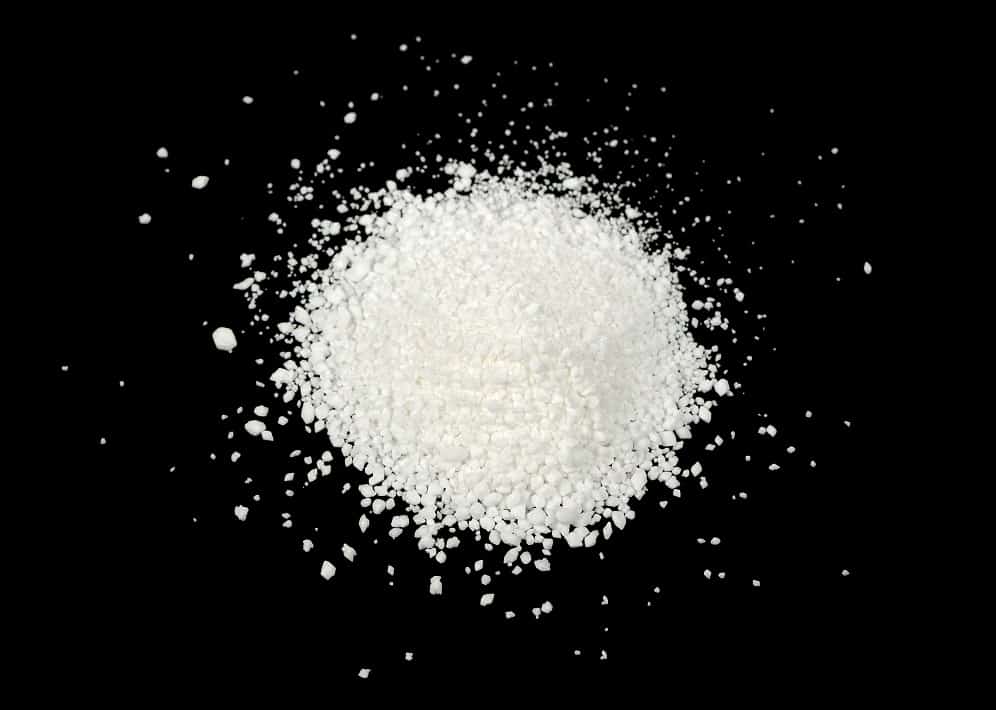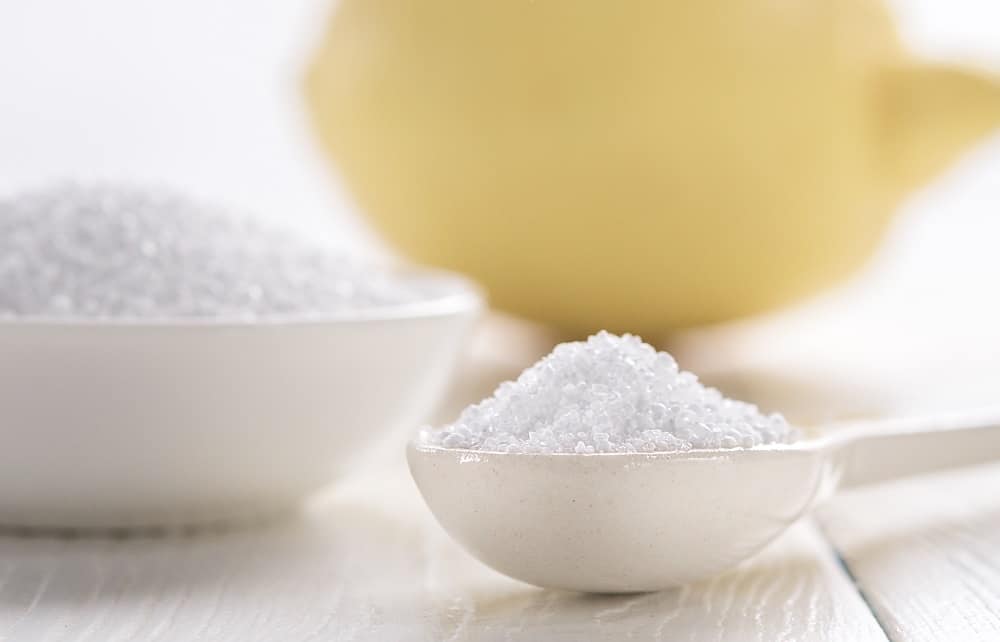Widely used all over the world, citric acid is one of the most important organic acids used. Primarily playing the roles of acidulant and preservative in consumer products, citric acid production is on the rise as it is expected to reach 2.91 million tons by 2026 (1). Seeing the ingredient in a wide selection of products, some might wonder whether this chemical is suitable for their vegan diets or not.
While citric acid can be extracted from plant sources, industrially produced citric acid typically comes from the fermentation of carbohydrate substrates using Aspergillus fungi. Without the use of any animal products or derivatives, citric acid is a vegan substance.
Table of Contents
What is Citric Acid?

Citric acid is a naturally occurring weak organic acid (pH 3-6) that is denoted by the chemical formula C6H8O7. Citric acid can be found in all organisms that undergo aerobic respiration as it is a key component in the citric acid cycle (also known as the Krebs cycle or the tricarboxylic acid cycle), but the weak acid is known to be concentrated in citrus fruits such as lemons and oranges (2).
Citric acid is primarily used as a preservative in a wide array of products. This works by using citric acid to raise the acidity of the product, thus inhibiting microorganisms that would be responsible for spoilage.
While most of the citric acid produced (60%) goes to the food industry (3), citric acid is also used in other industries as well. The acid is also used in many detergents as a water softener and as a buffering agent in the toiletry and pharmaceutical industries.
Citric acid is also used to increase tartness which complements fruits and berries flavor in different products such as food items and beverages. Citric acid is also used in frozen fruit as the acidity inactivates oxidative enzymes that would lead to spoilage. Citric acid is also highly used in cosmetics and other industries as a metal chelating agent.
Is Citric Acid Vegan?
Citric acid is a completely vegan substance as its production does not require or involve any animal product or derivative. It is an organic acid that can be extracted from plants but is predominantly produced by industrial fermentation using fungi.
Citric acid is also listed in PETA’s (People for the Ethical Treatment of Animals) as a vegan alternative to animal-derived acids such as alpha-hydroxy acids (4).
Some people might worry that citric acid is non-vegan as it requires sugar for production. Some vegans worry that sugar is non-vegan because some companies use bone char (the charred bones of animals) for sugar production. However, the sugars used for citric acid production are raw materials and even wastes – not processed sugars.
Citric Acid Synthesis
While citric acid can be extracted from plant sources, it is industrially produced through microbial fermentation using fungi. The most widely used fungi for citric acid production is A. niger (about 99%) (5) but other fungi in the same genus are used as well such as A. aculeatus, A. awamori, A. carbonarius, A. wentii, and A. foetidus (3).
Other fungi have been used as well such as:
- Penicillium janthinelum
- Saccharomicopsis lipolytica
- Candida tropicalis
- C. oleophila
- C. parasiolpsis
- C. citroformans.
There are three types of fermentation processes currently used to produce citric acid: submerged, surface, and solid fermentations.
The most common of the three is submerged fermentation with about 80% of the world’s citric acid produced this way. This is a fermentation method that uses large fermentation tanks (bioreactors) where a liquid medium that contains all the nutrients (e.g., carbon, oxygen, etc.) is inoculated with fungal spores. The entire fermentation process then takes about 5 to 10 days.
Different fungi can utilize different substrates. Common substrates used in citric acid fermentation include brewery wastes, beet molasses, cane molasses, wood hemicellulose, date syrup, corn starch, starch hydrolysate, soybean oil, and such.
During the fermentation process, the fungus grows and consumes the nutrients in the fermentation tank. As a result, the fungus then converts the nutrients into citric acid which is then harvested and purified at the end of the production process.
Food that Contains Citric Acid

A naturally occurring substance, citric acid can be found in almost everything. However, there are some sources that are higher in citric acid than most. Some natural sources that contain high amounts of citric acid include lemons, limes, oranges, tangerines, pomelos, tomatoes, strawberries, cranberries, raspberries, grapefruits, and pineapples.
Industrially produced citric acid is also used in many products such as ice cream, caramel, sodas, beer, cheese, canned food, baked goods, processed sweets, packaged fruits and vegetables, and baby food.
Is Citric Acid Safe?
Since industrial citric acid is produced using a fungus, many people worry whether citric acid can pose a danger – especially when it comes to fungal allergens. With the evidence from numerous studies, various food safety authorities have certified the safety of citric acid for general consumption.
The FDA (Food and Drug Administration) lists citric acid as “generally regarded as safe” (GRAS) as it passed the specifications and standards for food chemicals and is allowed to be used in food without certain limitations other than good manufacturing practice (6).
The EFSA (European Food Safety Authority) also certifies the safety of citric acid for general consumption. Along with other acids (e.g., acetic acid, lactic acid), the agency does not even require a numerical acceptable daily intake (ADI; a maximum amount of a chemical that can be ingested daily without any adverse health effects) for citric acid (7).
Because of the acidity of citric acid, the Academy of General Dentistry (AGD) does suggest being careful and to consume food with citric acid in moderation. Excessive amounts of citric acid can cause the tooth enamel to decay over time. As a precautionary measure, the AGD recommends people to rinse their mouths after eating or drinking food and beverages that contain citric acid (5).
References
1. https://www.expertmarketresearch.com/
2. https://www.sciencedirect.com/
5. https://www.chemicalsafetyfacts.org/




